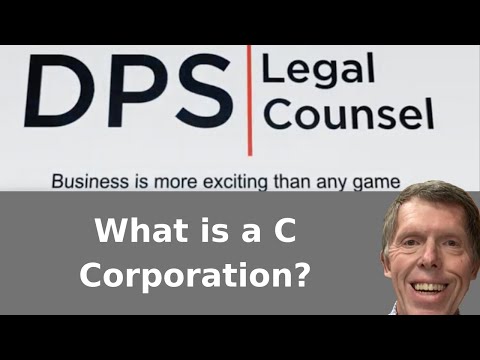A C corporation is not a pass-through entity. Rather, it is itself a tax-paying entity.
That means that a C corporation must pay federal income taxes on its profits. Then when profits are distributed to its shareholders as dividends, the shareholders must again pay federal income tax on the receipt of those dividends.
This is the so-called “double taxation” that has long been one of the reasons (perhaps the main reason) that most small businesses choose a different business organization in which to conduct business–either an LLC or an S corporation.
However, with the lowering in the corporate tax rate after the most recent tax act, small business owners may wish to at least consider a C corporation for their businesses.
If an entrepreneur plans on keeping money invested in his or her business to use for business development and growth, it may be possible that a C corporation will actually be a better choice for the business than an LLC or an S corporation. That’s because all of the profits in a pass-through entity will be taxed to the owners of the business (and their tax rates may, depending on the situation, actually be higher than the new corporate tax rate).
All prospective business owners should consider all of their choices–an LLC, an S corporation, and a C corporation–and run the numbers on each of the entities before settling on a final choice of entity for their business.

